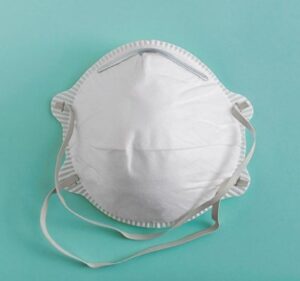 The full extent of COVID-19 and the health risks it poses are still not fully known. Although the severity of the virus can vary widely from person to person, the UK’s Advertising Standards Agency (ASA) consider it to be a condition which requires medical supervision.
The full extent of COVID-19 and the health risks it poses are still not fully known. Although the severity of the virus can vary widely from person to person, the UK’s Advertising Standards Agency (ASA) consider it to be a condition which requires medical supervision.
As a result, the ASA have concluded that advertisements which claim to diagnose or treat the virus may discourage the public to seek the necessary medical treatment from a health professional. The ASA has also stated that products claiming to prevent or treat the virus are likely to be considered as medicinal claims, and will therefore be classified as either medicines or medical devices, which are handled by the Medical and Healthcare Products Regulatory Agency (MHRA).
The MHRA are currently investigating a number of unauthorised medical products claiming to treat or prevent COVID-19, such as self-testing kits, antiviral misting sprays and unlicensed medicines. At the moment, there are no self-testing kits or medicines approved for treatment or prevention of the virus. The MHRA have disabled a number of social media accounts working to sell such products.
With that being said, the UK is currently seeing a shortage of authorised healthcare products in response to the COVID-19 outbreak. The MHRA is working with the Department of Health and Social Care (DHSC) to develop a regulatory response which allows flexibility for businesses wanting to rapidly enter the medicine supply chain.
With regards to Medical Devices, the MHRA are taking a flexible approach to regulatory requirements in response to COVID-19. New submissions for clinical investigations with an impact on COVID-19 will be processed through an accelerated review. The MHRA have also stated that any changes to protocol resulting from the virus do not need to be notified to them. To prevent shortage of non-CE marked medical devices (with an impact on COVID-19) the MHRA are processing exceptional use applications in cases where no CE marked devices are available.
In relation to Clinical Trials, the MHRA are accelerating reviews for trial applications to support manufacturers on potential COVID-19 treatments. Trials relevant to the virus are not required to inform the MHRA when temporarily stopping and re-starting. Posting investigational medicinal products to trial subjects will only require verbal consent and subject monitoring visits may be reduced without trial amendment. Remote subject monitoring is also allowed, as well as remote access to medical records. Protocol deviations need not be reported as serious breaches.
These regulatory flexibilities are effective immediately. Whilst they are only temporary, they aim to accommodate manufacturers so that public demand can be met during this time of need. For more information on MHRA guidance please see: https://www.gov.uk/guidance/mhra-regulatory-flexibilities-resulting-from-coronavirus-covid-19
#Coronavirus #Covid19 #MHRA



